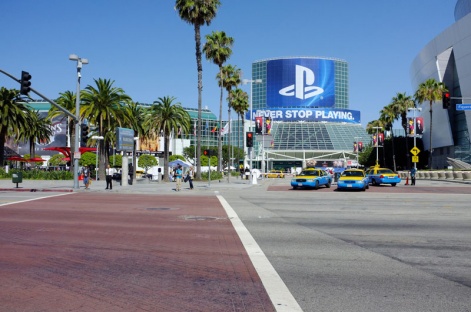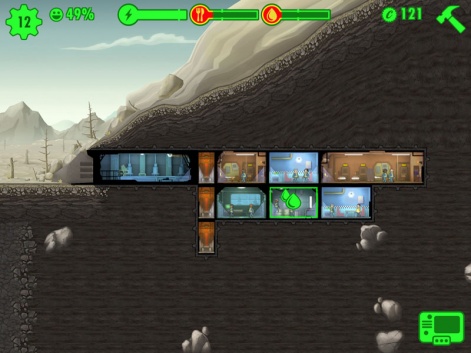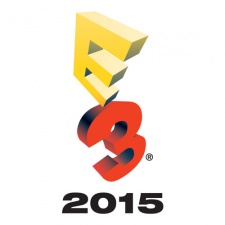Originally published in June 2015, Matt Suckley's opinion piece about where E3 fits into a games market that's increasingly global and increasingly less-console focused seems even more relevant 12 months on.
I was playing 5-a-side football on Sunday, when a friend of mine asked, “Are you watching E3 tonight?”
He meant the Bethesda E3 press conference, mind, but this is a friend who isn't in the games industry.
He's a gamer, but not someone I had pinned down as an active observer of besuited execs and whooping journos.
It made me realise how far E3 has come.
For what's ostensibly a US-centric trade show organised by the ESA in Los Angeles to have entered the realm of smalltalk in smalltown UK, brought up in conversation in the same casual manner as a sporting event or a Game of Thrones episode, speaks volumes.
Shifting landscape
The event is clearly doing something right, but has it adapted enough to the position it now finds itself in? And is it well positioned for the future?
I'd argue it hasn't and it isn't.
After all, what makes E3 a compelling event now has very little to do with it being housed in the LA Convention Center.

Instead it's the festival atmosphere it creates; a celebration of the art and industry of games where, for all the nonsense, some genuinely brilliant moments take place.
Indeed, with E3 now spread across YouTube and Twitch, many journalists have come to the conclusion that it's easier, cheaper and, indeed, more efficient to simply cover the conferences from home.
The timing of E3, not the location, is now key.
As a result, the notion that, for a handful of days a year, a convention centre in LA supposedly becomes the headquarters for a diverse and worldwide industry, is becoming increasingly outdated.
Let's face it. The location is becoming irrelevant.
Instead, the timing, the E3 week - kicking off with the big press conferences, dissolving away into hands-ons and parties - before being bookended with Games of the Show awards - is key.
Gaming for the few
A narrow approach to venue goes hand-in-hand with the limited perspective on the industry that E3 provides.
The classic example this year was EA, seemingly mindful that E3 used to be a show for US retailers, spending a significant chunk of its E3 presentation showing off the latest iterations of its NHL and NBA franchises - franchises almost exclusively popular in North America with little penetration elsewhere.
What a wasted opportunity.
And even when it came to EA Mobile, which engages with a massive worldwide market - 715 million downloads - there were mere mentions for Minions' Paradise, the new Star Wars CCG and FIFA.
The response from LA and on the internet was muted, and rightfully so.
EA's attitude is a symptom of the same issue that bedevils the show, though.
E3, seemingly oblivious to the reach it now has, still targets the same American console gamer demographic.
Mobile is a dirty word, uttered shamefacedly and met with derision, and that's deadly for the show's longterm future.
Mobile is still a dirty word, uttered shamefacedly and met with derision, and that's deadly for the show's longterm future.
Supercell, King, GungHo, Zynga, Machine Zone - all billion dollar mobile companies don't spend money at E3. Even blowing their budgets on a Super Bowl advert is considered more effective.
Think wider
Perhaps a more decentralised approach could help.
As we've said, timing not location is what's key to E3 as a marketing platform, so why not take a leaf of out organisations like TED and have regional E3s, happening during the same week just in different timezones?
Some could be linked to physical events, some just video streams, Google Hangouts, Periscoped meets etc.
Why couldn't we have a week of E3 everywhere, including Paris, Melbourne, Shanghai, Jakarta, Vancouver, the International Space Station...?
Localised pockets of activity, streamed on a much smaller scale and synchronised within the same time-frame, would allow us all to celebrate gaming for the diverse landscape it is in 2015 rather than cramming it into a late-90s model of 80-inch plasma screens and queues in a big air-conditioned hall.

It may not possess the same grandeur as the current set-up, but a decentralised E3 would both better represent the industry and allow publishers to more effectively meet the needs and trends of specific markets.
E3 played right
Because as Bethesda's E3 press conference demonstrated, the games industry is global and immediate.
Within minutes of announcing Fallout Shelter, it was live on the App Store, and thousands of people were downloading it. A couple of days later, the game is riding high in the top grossing charts and Bethesda is $5 million the richer. .
The brutal fact is - and as will be underlined in 2015 as the financial worth of the mobile games industry overtakes the console sector, and Asia becomes a larger market than the west - a one-size-fits-all 10 gallon cowboy gamer hat from 1995 no longer fits.
The industry has changed, and it's now time for E3 to change too.






















